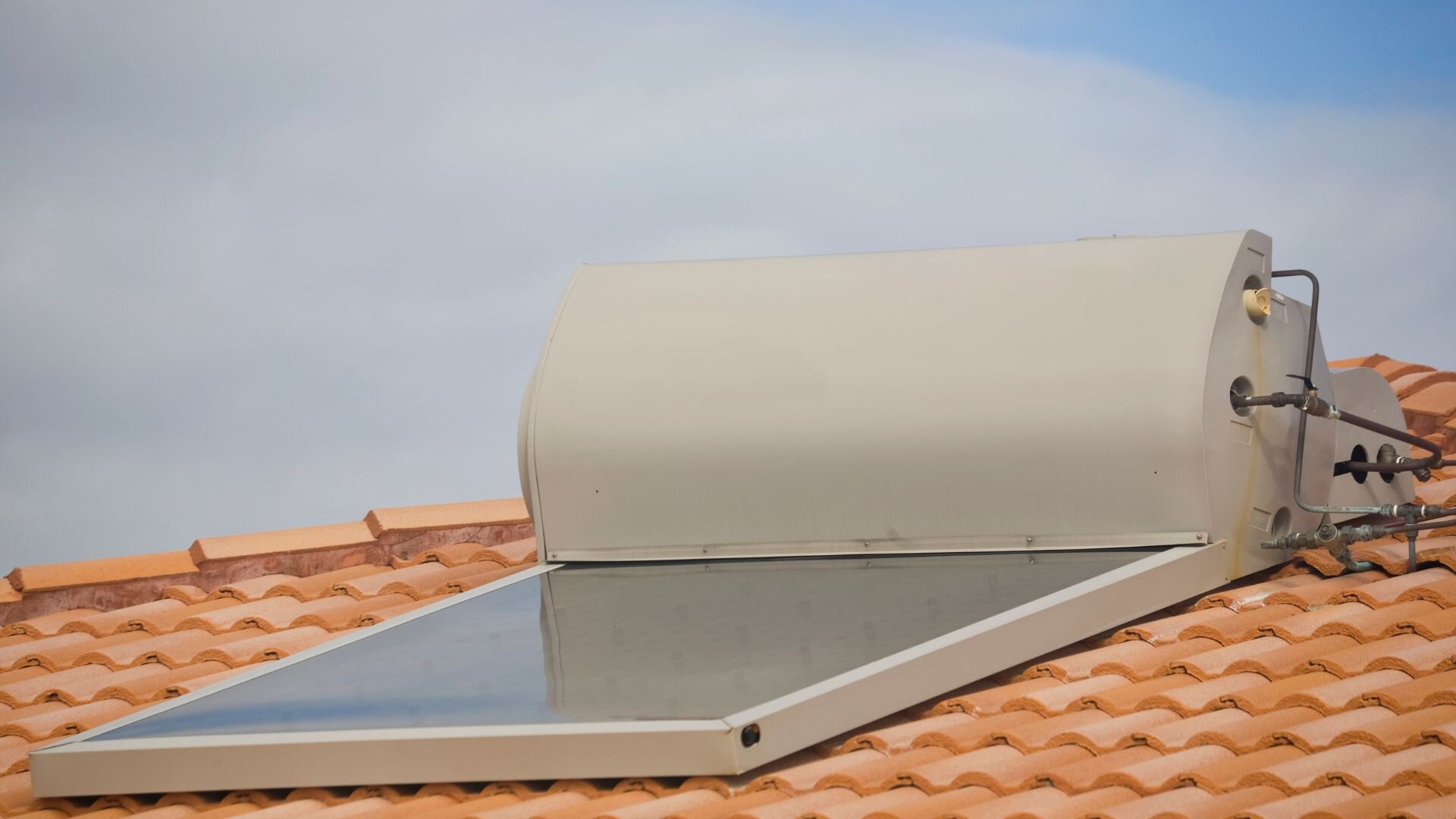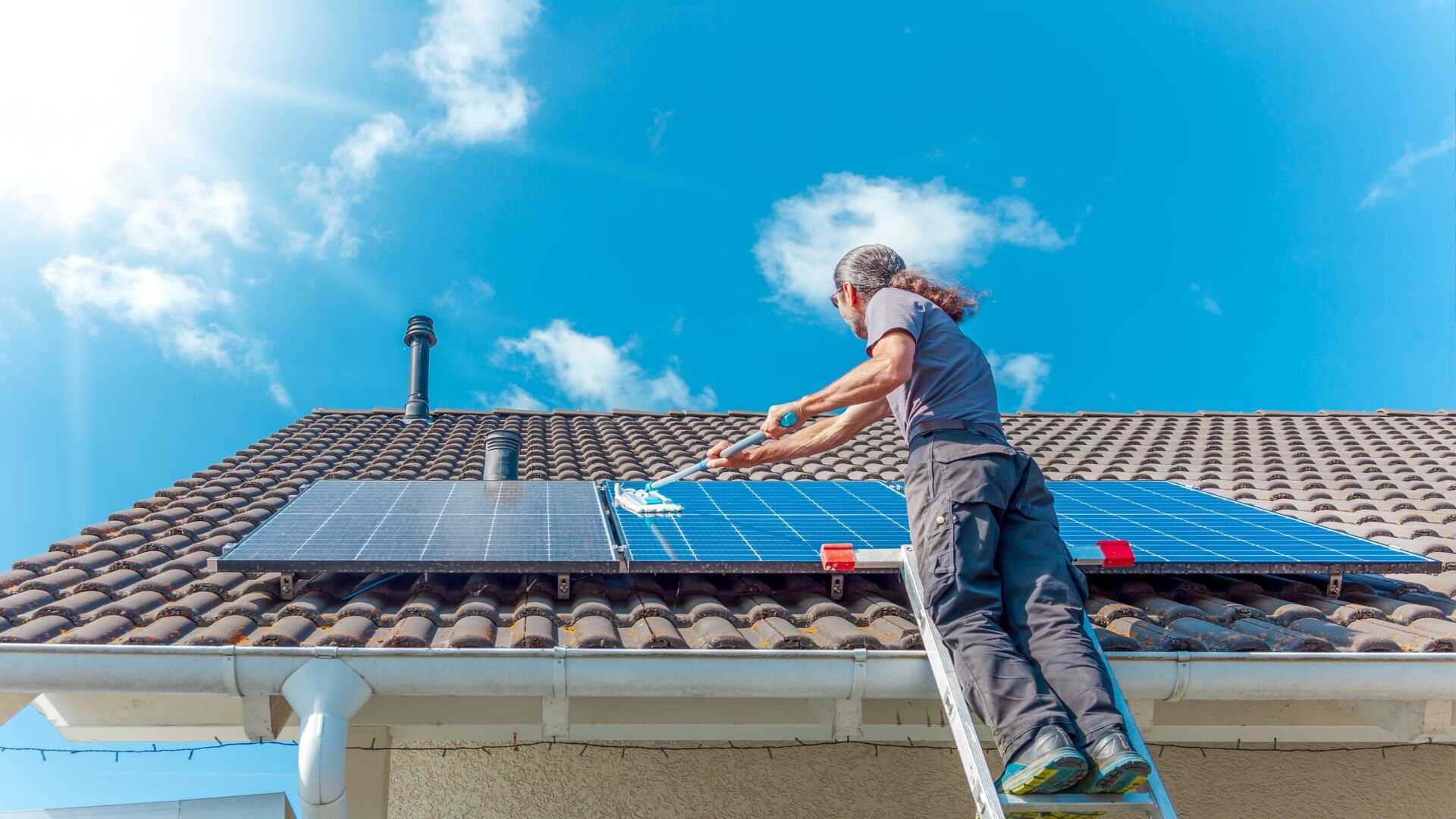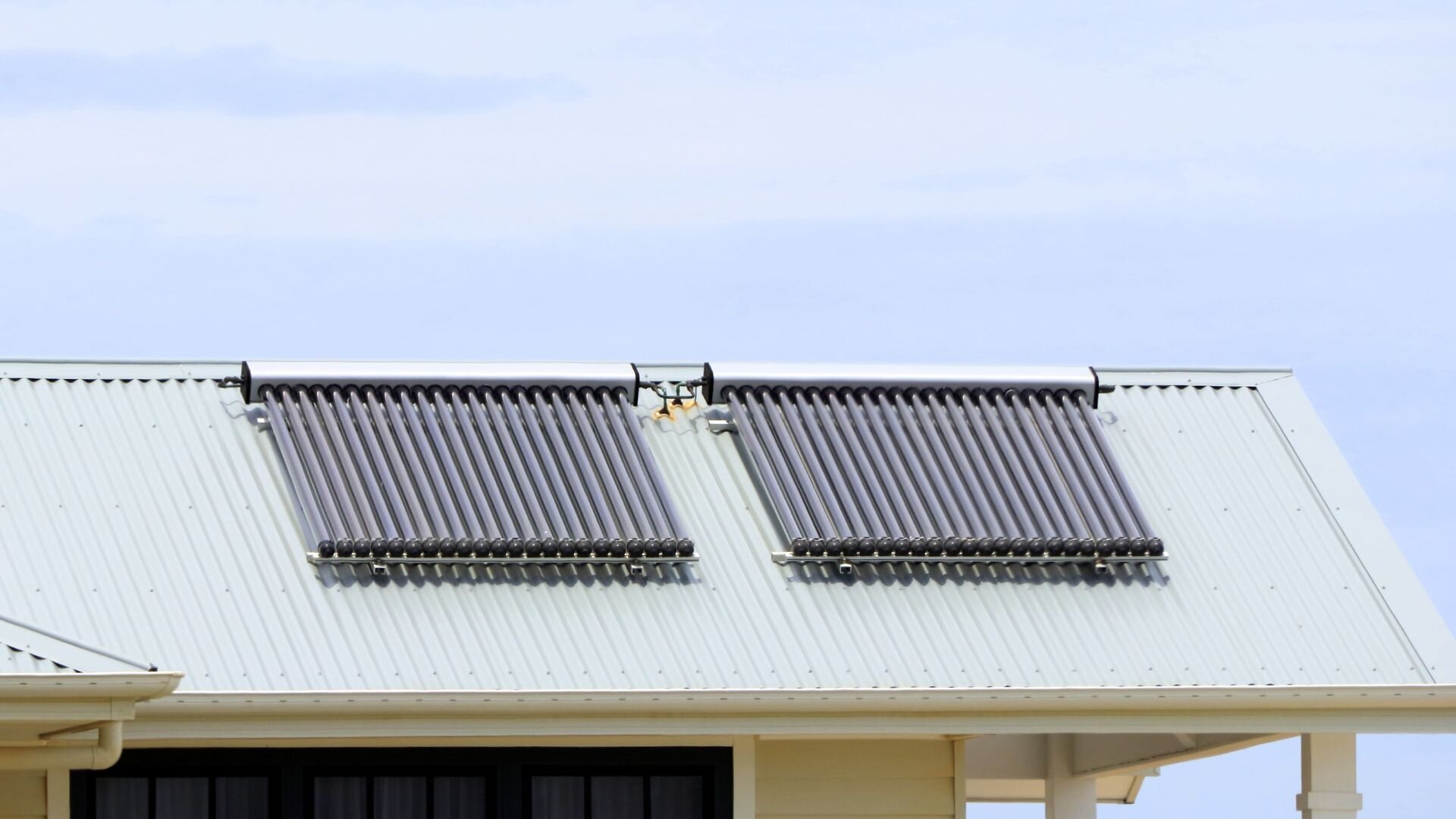Solar hot water systems harness the sun’s energy to heat water, offering an eco-friendly and cost-effective alternative to a conventional gas hot water system or electric water heaters.
Installing a solar water heater can significantly reduce your energy bills and carbon emissions. However, to reap the maximum benefits of your solar investment, ensuring your solar hot water system operates at peak efficiency is crucial.
Understanding Your Solar Hot Water System

A solar hot water system consists of three main components: solar hot water collectors, a storage tank, and a circulation pump. Solar collectors, usually mounted on the roof, capture the sun’s energy to heat water. The heated water is then stored in an insulated hot water tank, ready for use. A pump circulates water between the collectors and the tank, maintaining solar hot water efficiency.
The two primary types of solar hot water systems are flat plate and evacuated tube collectors. Flat plate collectors are more common and cost-effective, while evacuated tube collectors are more efficient, especially in cooler climates. Thermosiphon systems rely on natural convection to circulate water, eliminating the need for a pump. When there’s insufficient solar power, an electric or gas booster ensures a consistent power supply of hot water.
By understanding how your solar water heater works, you can make informed decisions to optimise its performance. Choosing a company that provides quality service and exceptional service ensures your system operates smoothly and delivers maximum energy savings.
Proper Installation and Orientation
To ensure your solar hot water system performs optimally, proper installation and orientation are crucial. Engage a professional installer who can assess your site and determine the ideal placement for your solar panels.
In Australia, solar collectors should face north for maximum exposure to sunlight. The optimal angle depends on your location, but generally, it should be close to your latitude. Proper insulation of hot water pipes and the storage tank is essential to minimise heat loss and maintain water temperature.
Insufficient insulation can lead to higher energy consumption and reduced system efficiency. Consider potential shading factors, such as trees or nearby buildings, that could obstruct sunlight and diminish your solar generation.
Plan for future tree growth to avoid shading issues down the line. If shading is unavoidable, discuss alternative solutions with your installer, such as a heat pump system or gas or electric booster, to ensure a reliable hot water supply.
Regular Maintenance and Inspection
Regular maintenance and inspections are essential to keeping your solar hot water system running efficiently. Schedule annual professional check-ups to ensure all components, including solar collectors, pumps, and storage tanks, are functioning correctly. Over time, dust and debris can accumulate on the collectors, reducing their ability to absorb sunlight.

Clean the collectors regularly to maintain optimal heat absorption and maximise your solar water heating performance. Inspect pipes and the storage tank for leaks or corrosion, which can lead to water loss and decreased efficiency. If left unchecked, leaks can cause damage to your property and result in costly repairs.
Monitor the system’s pressure and temperature settings to ensure they align with the manufacturer’s recommendations. Imbalanced settings can hinder performance and reduce the overall effectiveness of your solar hot water system.
If you have an electric hot water system as a backup, check the electric heaters for any signs of wear or damage. Replace the anode rods in your storage tank every five years to prevent corrosion and extend the tank’s lifespan.
Efficient Water Usage Habits
In addition to maintaining your solar hot water system, adopting efficient water usage habits can enhance your energy savings. Install low-flow showerheads and faucets to reduce water consumption without compromising comfort. Promptly fix any leaky taps, as even a small drip can waste significant water and energy over time. When using dishwashers and washing machines, run them with full loads to optimise water and energy usage. Set the water temperature on your solar water heater to an appropriate level to avoid scalding and minimise energy waste.

If you have an electric hot water system as a backup, ensure the electric heaters are set to the correct temperature to prevent overheating and excessive energy consumption.
Combining these water-saving habits with your solar water heating system can maximise your solar hot water worth and make the most of any excess solar generation. These practices help you conserve water and energy and prolong the life of your water heater and its components, such as the heat exchanger coil, ensuring your solar system remains efficient for years.
Harnessing the Sun’s Power for Your Home
By implementing these expert tips, you can ensure that your solar hot water system operates at peak efficiency, saving you money and reducing your environmental impact. For professional assistance with your solar hot water needs, contact the experienced team at Service First Plumbing, your trusted local experts. We offer a comprehensive range of solar hot water services to ensure your system runs smoothly and efficiently.


